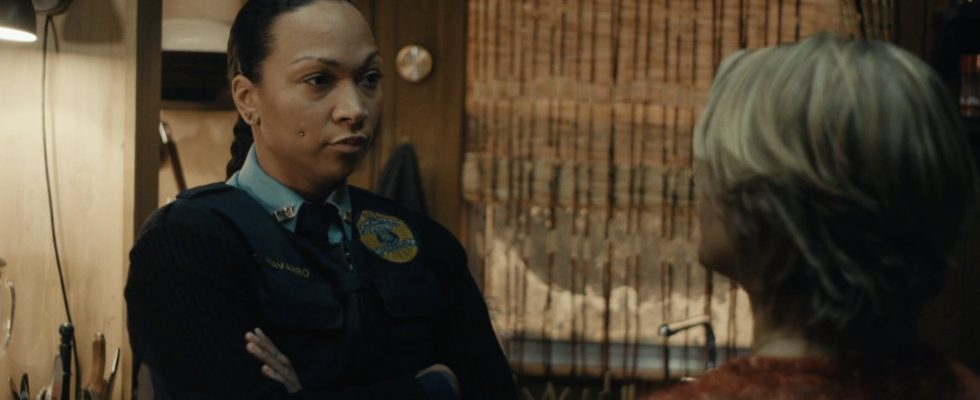True Detective 4, released in January on HBO and Prime Video, proved to be a success. Playing on the themes of other seasons – the blurring between the real, the supernatural, the past and the present – this latest opus highlights two female characters served by excellent actresses, Jodie Foster, who needs no introduction. , and a revelation, Kali Reis, world boxing champion, who bursts onto the screen with her physical presence and her impassive gaze. In this darkest plot in both senses of the word – it takes place during the few days of complete darkness in a fictional Alaskan town – police officers Liz Danvers and Evangeline Navarro are striking for their courage but also their injuries. The aggressiveness of one and the shell that the other has built hide tortured minds and traumatized souls. While Danvers appears to have lost her husband and son in a car accident, Navarro, who is mixed race, struggles to recover from the brutal murder of a native woman. Having lost hope in humanity, they are condemned to suffer under this Alaskan sky which weighs like a lid.
This would hardly matter if these psychological characteristics were not found in a large number of heroines in detective series. In Mare of Easttown (2021), investigator Mare Sheehan, played brilliantly by newly divorced Kate Winslet, struggles to gain custody of her grandson after her son’s suicide. Or again, in Homeland (2011-2020), the main protagonist and CIA agent, Carrie Mathison (Claire Danes), suffers from bipolar disorder.
Same thing on our shores. The Fall (2013-2016) features an English inspector, played by Gillian Anderson, responsible for hunting down a misogynistic serial killer. Feminist, single, seductive, endowed with superior intelligence, she also shines neither by her good humor nor by her normality. And what about the heroines of the two great Scandinavian detective series of the last two decades, The Killing (Forbrydelsen2007-2012) and The Bridge (Bron, 2011-2018)? When Sarah Lund (Sofie Grabol), consumed by her investigations, comes to destroy her personal life, Saga Norén (Sofia Helin) has no ability to interact with those around her since, it is suggested, she is without autistic doubt.
Should we look for the source of these tormented characters in the first models of these roles destined for great success? Kima Greggs (Sonja Sohn), in The Wire (2002-2008), pioneer of these great realistic police series, is a hardened, cynical, unfaithful and drunk cop. She will be followed shortly after, in France, by the equally (self-) destructive commander (without “e”!) Laure Berthaud (Caroline Proust, exceptional), figurehead of the excellent series Gears (2005-2020).
Endearing, these women also prove to be… alarming. However, would we watch detective series if their heroes, smooth and banal, led an orderly life and did not allow themselves to be literally devoured by their extraordinary investigations? No, probably. But if male police officers have their share of misery, in comparison, their female acolytes or counterparts manifest an additional degree of unease, instability and propensity for chaos.
Perhaps we should see this as the result of a clumsy attempt to depict women occupying positions that had long remained essentially masculine. As if, for fear of featuring Miss Marples, we inevitably found ourselves inventing deeply unrealistic and unbalanced female characters. The time has undoubtedly come to find a happy medium between Liz Danvers and Miss Marple.
.
